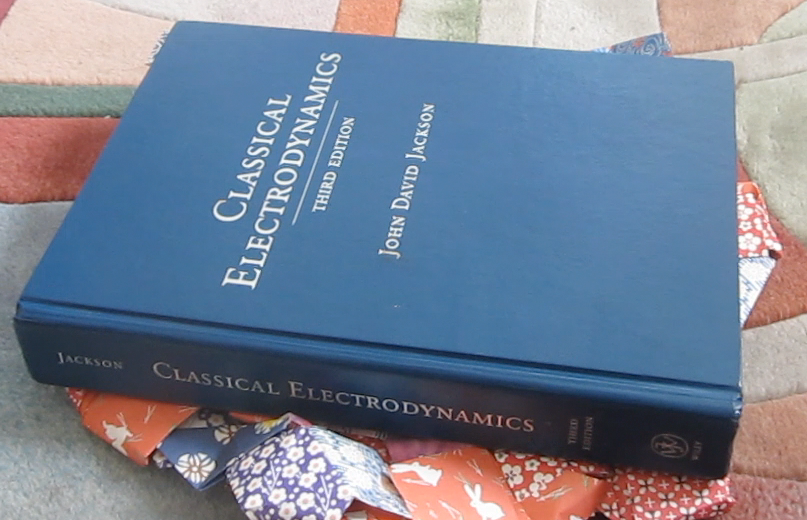In Unit Origami, origami master Tomoko Fuse lovingly describes what she does with old origami. She burns it, watching the colored flames. I love it. I think it might be a fire hazard though.
The second brillouin zone of the fcc structure
This is the model that's closest to death. It's very big, and made of 96 pieces. Plus it's one of the early ones I invented on my own, and I wasn't very good at creating something stable. It has been sagging under its own weight for quite some time.
Jackson reveals yet another practical application
I chose a simple method of destruction: drop a textbook on it. I mean, I have all these textbooks nearby, it was a natural idea.
Modern origami art
The destruction of origami is the destruction of meaning. Here, we have so many squares of paper. Here, they are shaped into avatars of symmetry, by fingers and planning and imagination. And here, they become a so many pieces of paper again. Here, they go into the trash, alongside discarded wrappers and tissue paper. Not only does it no longer have any meaning, it never had any meaning, and was never even an "it".
The destruction of meaning is deeply meaningful to me. I have a personal association between sentimentalism and a kind of mindless materialism. Hoarding material objects with non-material significance. When the objects are finally gone, their meanings, and we, are set free.



.jpg)








0 comments:
Post a Comment